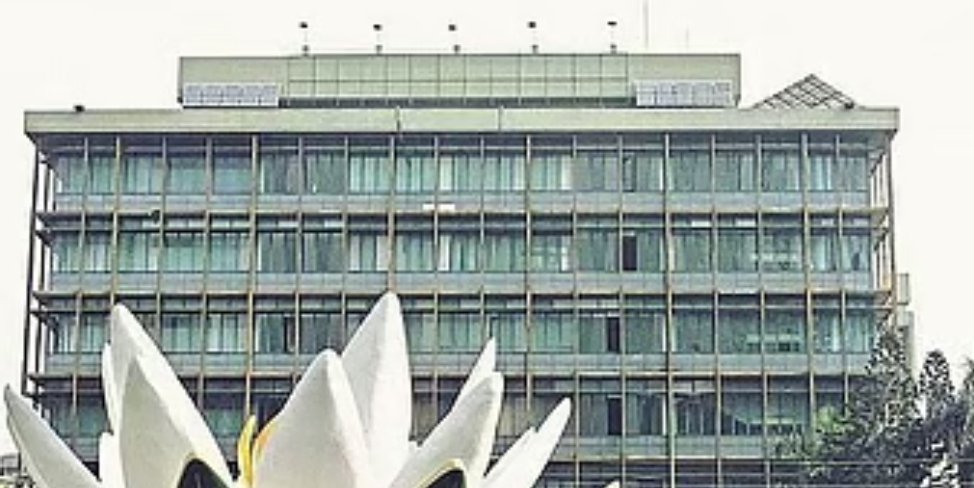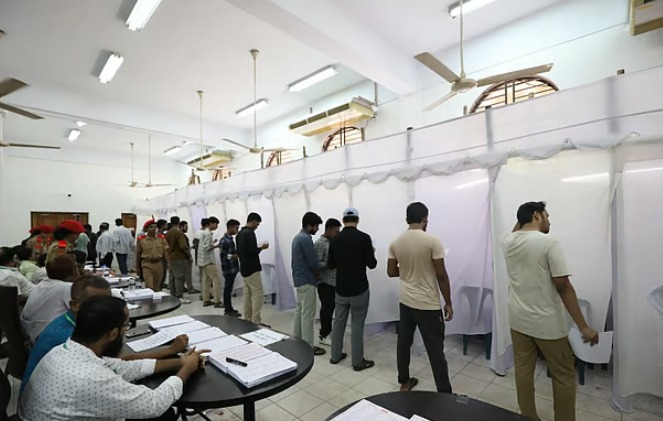Desk Report,
Why did defaulted loans double in 9 months?
After the fall of the Awami League government, the defaulted loans of the banking sector have increased dramatically. The defaulted loans also increased during the term of the ousted Awami League government. Various strategies were then adopted to make the defaulted loans appear low. Before each election, a special system was provided to regularize the defaulted loans.
Why did defaulted loans double in 9 months?
In addition, there was a special system in case of any domestic or global crisis—even if the loan was not paid within a certain period, it was not declared defaulted. Even then, the defaulted loans increased significantly during the term of the Awami League government.

Latest
Politics
Bangladesh
Crime
World
Business
Opinion
Sports
Entertainment
Jobs
Lifestyle
Eng
By using this site, you agree to our Privacy Policy.
OK
Video
Video
Photo
Analysis
Why did defaulted loans double in 9 months
Sanaullah Shakib
Dhaka
Published: 20 June 2025, 09:00
Follow

Bangladesh Bankfile Photo: Prothom Alo
The defaulted loans of the banking sector have increased dramatically after the fall of the Awami League government. Defaulted loans also increased during the term of the ousted Awami League government. Various strategies were then chosen to make defaulted loans appear low. Before each election, special arrangements were made to regularize defaulted loans. In addition, there was a special arrangement in case of any domestic or global crisis – even if the loan was not paid within the specified period, it was not considered defaulted. Even then, defaulted loans increased significantly during the term of the Awami League government.
When the Awami League formed the government in 2009, the total defaulted loans were only Tk 22,481 crore. Before the fall of the government in August last year, the amount of defaulted loans in the country’s banking sector stood at 211,391 crore taka at the end of June. The latest amount of defaulted loans in the banking sector stood at 420,334 crore taka at the end of last March. As a result, defaulted loans have doubled in the 9 months since the formation of the new government. Now the question is, why is it increasing so rapidly now, even though defaulted loans increased slowly earlier?
A loan becomes defaulted if it is not repaid on time. Banks distribute the depositor’s money as loans. If the distributed loans are not returned on time, depositors face problems in withdrawing money. Now, the banks that are having trouble repaying their customers’ money are not recovering the loans of those banks.

Latest
Politics
Bangladesh
Crime
World
Business
Opinion
Sports
Entertainment
Jobs
Lifestyle
Eng
By using this site, you agree to our Privacy Policy.
OK
Video
Video
Photo
Analysis
Why did defaulted loans double in 9 months
Sanaullah Shakib
Dhaka
Published: 20 June 2025, 09:00
Follow

Bangladesh Bankfile Photo: Prothom Alo
After the fall of the Awami League government, defaulted loans in the banking sector have increased dramatically. Defaulted loans also increased during the term of the ousted Awami League government. Various strategies were then chosen to make defaulted loans appear low. Before each election, special arrangements were made to regularize defaulted loans. In addition, there was a special arrangement in case of any domestic or global crisis—even if the loan was not paid within the specified period, it was not considered defaulted. Even then, defaulted loans increased significantly during the term of the Awami League government.
When the Awami League formed the government in 2009, the total defaulted loans were only Tk 22,481 crore. Before the fall of the government in August last year, the amount of non-performing loans in the country’s banking sector stood at Tk 211,391 crore at the end of June. The latest amount of non-performing loans in the banking sector stood at Tk 420,334 crore at the end of March last year. As a result, non-performing loans have doubled in the 9 months since the formation of the new government. Now the question is, why is it increasing at a rapid pace now, even though non-performing loans increased slowly earlier?
If a loan is not repaid on time, it becomes non-performing. Banks distribute the depositor’s money as loans. If the distributed loans are not returned on time, depositors face problems in withdrawing money. Now, the banks that are having trouble repaying their customers’ money are not recovering their loans.
Advertisement
One of the reasons for the increase in non-performing loans is a few in number. Loans distributed through irregularities during the former Awami League government are now becoming non-performing. Again, the non-performing loans that were hidden, that is, the loans were non-deliverable but were not displayed, are coming to light. Many businessmen known to be close to the Awami League are defaulting on their loans, which is also increasing defaulted loans. The recession in business and trade is also causing many to default. Along with this, the new policy on classifying loans or defaulting has also had an impact.
The central bank has once again introduced international standards in determining the quality of bank loans through the new policy. The regulatory body has decided that if the loan is not repaid within the specified time frame, it will be considered overdue. After that, if the loan is unpaid for more than 90 days, it will become defaulted. However, this rule has been effective since last April. The information on defaulted loans that has been released so far is up to March. As a result, this new policy has not had much of an impact on increasing defaulted loans. However, some banks have started classifying loans in accordance with this policy in advance.



